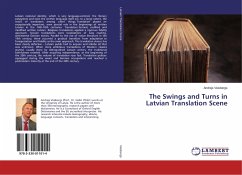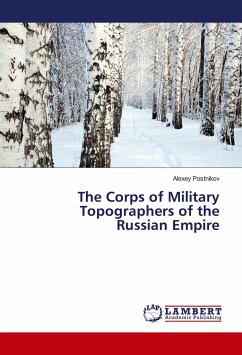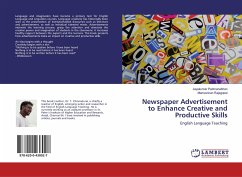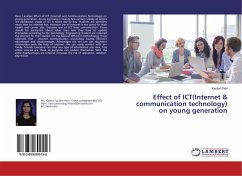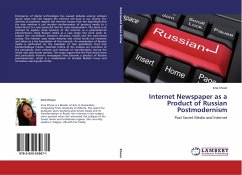
Internet Newspaper as a Product of Russian Postmodernism
Post Soviet Media and Internet
Versandkostenfrei!
Versandfertig in 6-10 Tagen
27,99 €
inkl. MwSt.

PAYBACK Punkte
14 °P sammeln!
Emergence of digital technologies has caused debates among scholars about what role and impacts the Internet will have in our society. The diversity of positions regards the Internet ranges from the hypothesis that the new medium is just another reinforcement of previous media to a belief that it is a new powerful tool for mass manipulation. This book is an attempt to explore some features of the Internet as a postmodernist phenomenon. Using Russian media as a case study, this work seeks to explore the correlations between electronic media and the post-Soviet society. The relevant mass media t...
Emergence of digital technologies has caused debates among scholars about what role and impacts the Internet will have in our society. The diversity of positions regards the Internet ranges from the hypothesis that the new medium is just another reinforcement of previous media to a belief that it is a new powerful tool for mass manipulation. This book is an attempt to explore some features of the Internet as a postmodernist phenomenon. Using Russian media as a case study, this work seeks to explore the correlations between electronic media and the post-Soviet society. The relevant mass media theories and critical works are reviewed and taken as a the foundation of this research. An examination of Russian media is performed on the examples of two periodicals: Trud and Komsomolskaya Pravda. Essential criteria of the analysis are functions of the periodicals, their content and methods of representation during the Soviet and post-Soviet periods. The study argues that the Post-Soviet press and particularly Internet newspapers have become a product of Russian postmodernism, which is a combination of Socialist Realism traces and innovative avant-garde trends.





